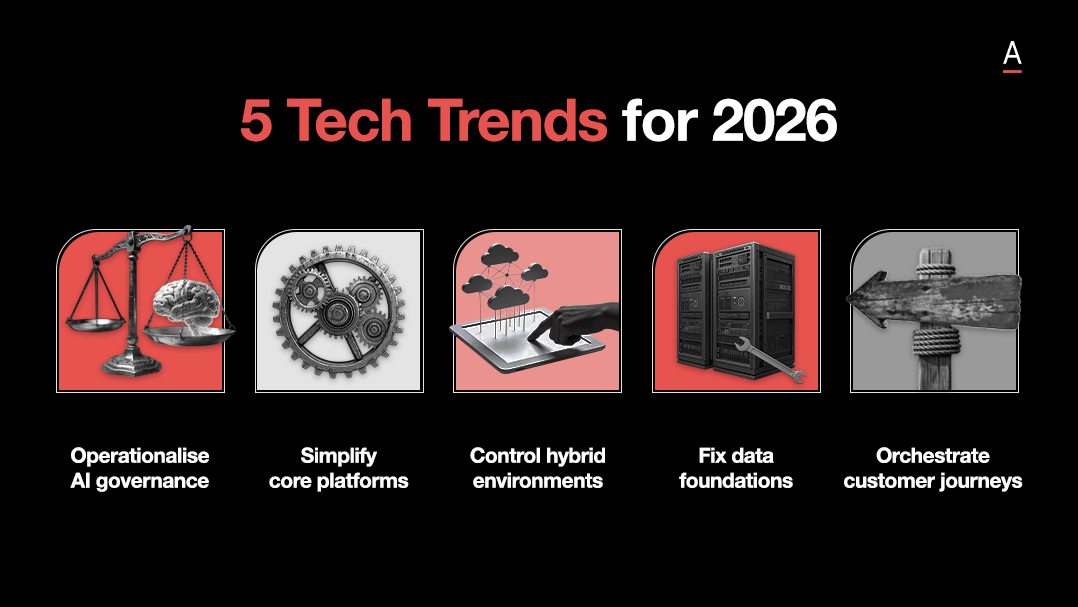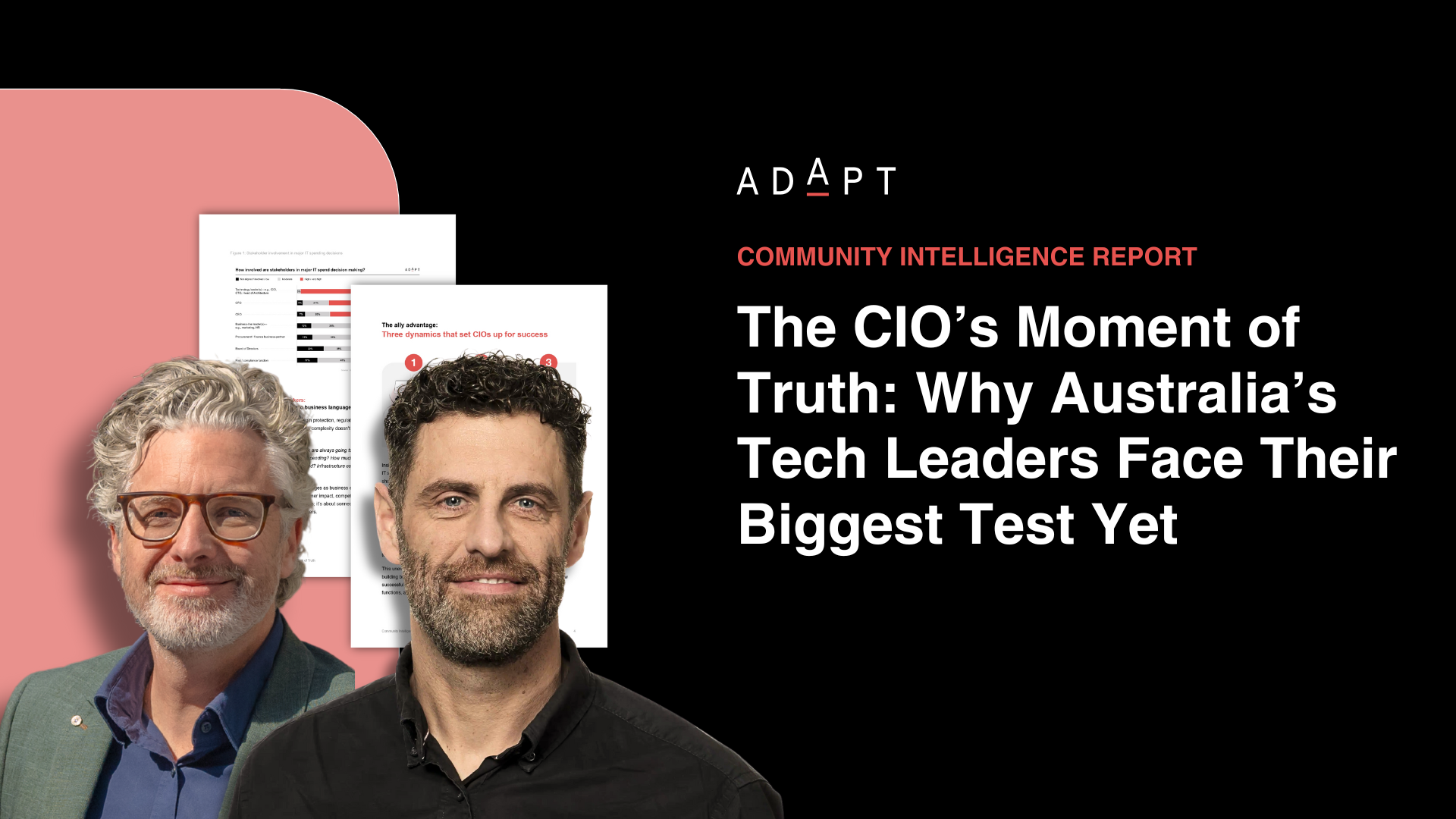Downer Group CIO and #2 in the CIO50 2024, Nicola Dorling, explores how CIOs can drive business-led digital transformation, simplify complexity, and align technology with strategic goals.
With a career spanning finance, consulting, and large-scale technology transformation, Nicola Dorling, Group CIO at Downer, brings a unique perspective to the evolving role of CIOs.
Having started as an ASX-listed CFO before transitioning into IT leadership, she understands how business priorities shape technology decisions and how digital transformation must align with financial and operational goals.
At CIO Edge, Nicola joins 180 CIOs and IT leaders responsible for delivering on the technology strategy for one-quarter of Australia’s GDP to discuss the challenges of simplification and enabling business-led change.
Simplification: more than just technology rationalisation
Simplification is often cited as a priority, yet many organisations struggle to execute it effectively.
Nicola said that while reducing the number of systems is a component of simplification, the real challenge lies in redesigning business processes, standardising data, and refining operating models to drive efficiency.
She highlighted that transformation should begin with identifying business pain points, determining how technology can support change, and then aligning digital investments accordingly.
For Downer, simplifying the technology stack is part of a broader effort to ensure that digital capabilities enhance business performance.
Nicola emphasised that organisations must consider cost efficiencies, process optimisation, and the ability to generate actionable insights from data.
She noted that true simplification comes from balancing operational needs with technology-driven efficiency rather than reducing complexity for its own sake.
The CIO as a change leader
The role of CIOs has evolved beyond delivering IT solutions to driving organisational change.
Nicola reflected on how CIOs must actively bridge the gap between technology and business strategy, ensuring that digital initiatives lead to measurable outcomes.
She emphasised that successful transformation depends on engaging business leaders early and involving them throughout the journey.
She also highlighted that resistance to change is often a result of uncertainty and that CIOs must ensure that technology is seen as an enabler rather than an imposition.
Where organisations struggle with transformation, it is often because business teams feel excluded from the process.
Nicola said that co-developing solutions with business units, rather than imposing technology-driven change, is essential to achieving long-term success.
Creating business value through technology
Many organisations evaluate technology investments primarily through a financial lens, yet Nicola noted that value creation extends beyond cost savings.
She reflected on her background in finance and how it has shaped her approach to technology decisions, ensuring that digital transformation efforts align with business performance goals.
At Downer, this is evident in how AI-driven analytics support infrastructure management by improving asset maintenance and predictive capabilities.
Nicola highlighted that digital transformation must be evaluated based on how well it enhances decision-making, streamlines processes, and improves service delivery.
She said that while technology is often seen as an enabler, the real measure of success is how it translates into tangible business impact.
Overcoming resistance to change
For CIOs leading change initiatives, gaining traction within the organisation requires a combination of strategic alignment, clear communication, and a pragmatic approach to overcoming resistance.
Nicola emphasised that engaging with business leaders early ensures digital transformation is seen as a collaborative effort rather than an IT-driven initiative.
Demonstrating industry use cases and showcasing practical applications, she explained, helps illustrate the relevance of new technologies to specific business challenges.
Developing well-defined business cases that extend beyond financial ROI to include operational efficiencies and customer impact is another critical factor she highlighted.
Fostering a culture of innovation within the business, she added, further accelerates the adoption of new technologies, ensuring transformation efforts gain momentum across the organisation.
The future CIO: a strategic business partner
Nicola reflected on the growing responsibility of CIOs in shaping corporate strategy.
As businesses become more reliant on digital capabilities, she highlighted that IT leaders must take a proactive role in aligning technology with broader business objectives.
She said that the next generation of CIOs will not only be responsible for technology delivery but also for driving the cultural and structural shifts required for long-term digital success.
She emphasised that CIOs who can simplify complexity, align technology with business strategy, and navigate organisational resistance will be best positioned to lead business-driven digital transformation.
Key Takeaways:
- Simplification is not just about reducing systems but optimising business processes, data management, and operational models to create a more efficient organisation.
- The CIO’s role has shifted from IT leadership to business leadership, requiring collaboration with CEOs and business unit heads to ensure technology supports broader strategic goals.
- Transformation initiatives fail when business teams feel technology is imposed on them rather than developed with them, making early engagement and co-creation essential.
- The value of technology investments must be measured beyond cost savings, focusing on decision-making capabilities, process efficiency, and customer outcomes.
- Overcoming resistance to change requires demonstrating clear business benefits, building strong business cases, and fostering an innovation mindset across the organisation.





























